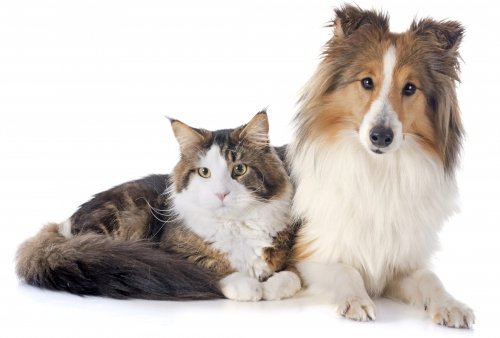As a $26 billion industry in 2014, the pet food sector is booming with opportunity for grain sorghum.
According to a recent study published by Food Technology, 79 percent of pet owners consider the quality of their pet’s food to be as important as their own. In fact, half of the pet food market in the U.S. is made up of the premium and super-premium sectors.
This is where sorghum stands out. With a slower digestibility of starch and a lower glycemic index, sorghum aids in the creation of premium products targeted toward obese, diabetic and geriatric pets.
The nutritional values found in sorghum overall are contributing to the increase in its use. Sorghum is naturally a non-GMO, gluten-free, ancient whole grain that contains beneficial nutrients such as niacin, potassium, magnesium and phosphorus. The Sorghum Checkoff, along with Kansas State University research professor Greg Aldrich, Ph.D., is conducting companion animal research to discover how to get the most out of these nutrients.
“We are looking outside the ‘norm,’ at areas such as skin and dermal health of the animal to try and find attributes to improve skin and coat health,” said Doug Bice, Sorghum Checkoff high value markets director.
A variety of researchers and nutritionists are taking notice of sorghum, as well. For the first time, sorghum was represented at the Petfood Forum in Kansas City, Missouri, by the Sorghum Checkoff in April, and it was a major success. Prior to the exhibit, Dr. Aldrich coordinated the Pet Innovation Workshop. Sorghum was the focus of the workshop, as Isonova and Extru-Tech showcased and developed a new dog food treat, the SorgYum K9 Cruncher.
“The K9 Cruncher treat utilized a number of ingredients, and sorghum was the key ingredient,” Bice said. “We showcased the treat to approximately 250 people. They got to see its utilizations both before and after it was baked, processed and served.”
During the workshop, IsoNova and Extru-Tech indicated working with sorghum in such an application provided many benefits to processors, including material handling and flow and reduced water usage. IsoNova provided the binder material to bring all the ingredients together in the formulation and Extru-Tech provided the extrusion process to develop the end product.
As more research is conducted, more and more pet food companies are considering sorghum. Currently, the pet food industry accounts for approximately two percent of the total sorghum market share. Not only are high-profile brands such as Iams, Hills, Eukanuba and others utilizing grain sorghum in their feline and canine food products, sorghum is also utilized in smaller companion animal feeds for birds, guinea pigs and others. In fact, nine brands have 25 products containing sorghum.
As researchers, nutritionists and pet food companies take a more serious look at grain sorghum, it is also important to note sorghum is cost effective from a processing, logistics and transportation standpoint and it’s environmentally friendly. With sorghum’s inherent drought tolerance, sorghum can produce more grain per inch of water than comparable crops, and it possesses flexibility to be profitable and competitive in higher yielding, more ideal conditions.
“Sorghum has environmental sustainability as a part of its overall makeup within different product lines, not to mention it is domestically grown by American Farmers,” Bice said, “which are other reasons why grains, such as sorghum, are looked at and being considered.”
As a nutrient-rich, environmentally-safe whole grain, sorghum is the smart choice for consumers and their pets. With this in mind, consumers are encouraged to think about grain sorghum the next time they purchase pet food.
Source: Sorghum Postured for Pet Food Industry Success – Sorghum Checkoff


